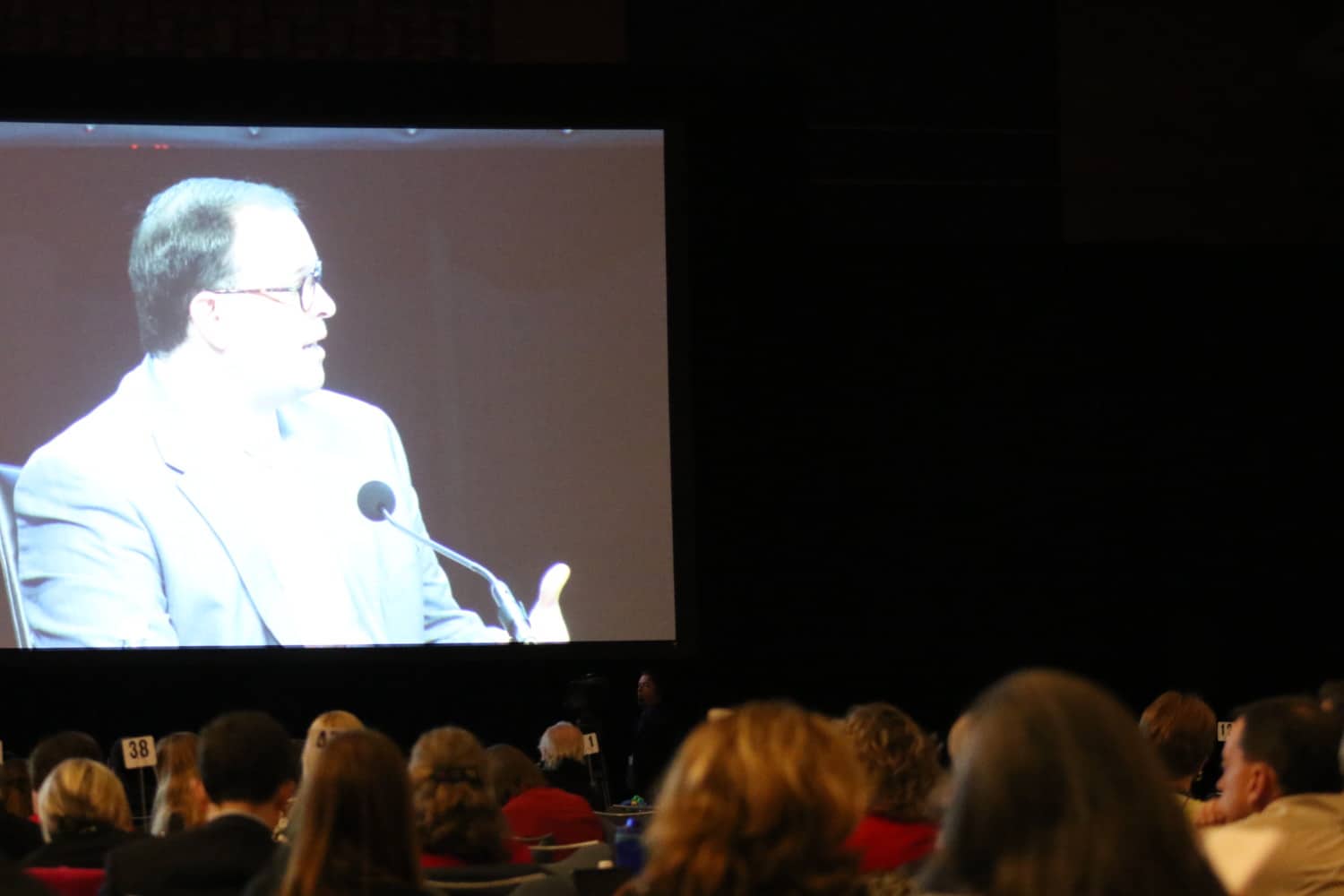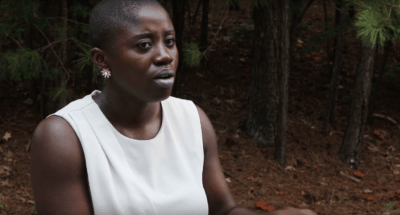For Heather Bain, the phrases “whole child” and “skills gap” are more than education policy jargon. As a coach for students in transition — between the courts, home life, health care, and school system — Bain sees firsthand how poverty, substance abuse, and incarceration affects students’ lives, educational experiences, and opportunities after school.
“My role is really to bring the community into the school to just help the kids succeed,” said Bain, who works at Lincolnton alternative school Asbury Academy.
Though she works with middle and high school students, Bain showed up to learn from early childhood education leaders at North Carolina State University’s Institute for Emerging Issues two-day “kidoNomiCs” forum. This comprehensive look at education — across institutions and ages — was echoed by political, business, and education advocates and researchers Monday.
Governor Roy Cooper addressed this intersection of factors present in children’s lives in his speech at the conference.
“We have to remember, as we consider education, that there are societal issues that affect that child from the moment of birth, and sometimes even before birth,” Cooper said. “We have to think about that whole child as we approach education. We have to think about affordable housing, and health care, and drug dependency, and the opioid crisis, and violence, and discrimination…”
Cooper reflected on the state’s education-centric history, pushed for workforce development, and emphasized the economic and developmental importance of early childhood education.
“I think it’s important today to remember that overall we have to start from the beginning,” he said. “Study after study after study, research after research after research, tell us time and again that early childhood education matters… There is a demonstrable, quantifiable difference between kids who get it and kids who don’t.”
Cooper, introduced by former education-driven Governor Jim Hunt, listed off education points of pride across the state like the public university system, community colleges, Smart Start, and Research Triangle Park.
“The reason that education has been at the core of all of these developments is because it has created opportunities,” he said. “It has helped make the American dream for so many people, bringing people from poverty into the middle class, brining people to a successful life.”
Watch Cooper’s full remarks below.
On a panel centered around the newly-formed B-3 Interagency Council, Sen. Chad Barefoot, R-Wake, Franklin, praised the collaboration across agencies. The council was created by the General Assembly last year to support children as they move from one section of the education continuum — birth to five years old, governed by the Department of Health and Human Services (DHHS) — to the next — kindergarten to 12th grade, governed by the Department of Public Instruction (DPI).
“That seems like a no-brainer idea, and it is,” Barefoot said. DHHS Secretary Mandy Cohen shared her priorities when it comes to the council’s work. She said she wants to measure students as they move through systems to know what works best and what to put funding behind. Family resiliency, health, and education, Cohen said, all play into a child’s outcomes from the earliest stages of life. Cohen said traumatic experiences in childhood, from a medical and educational standpoint, make a large difference.
“Children experiencing trauma or adverse events early in life, between zero and five, also have a long-term impact on their ultimate health and their success,” Cohen said. “So we’re seeing children who had two or three adverse events, anything from divorce or abuse or seeing a parent with a substance abuse disorder, we’re seeing those adverse events add up to not only not being successful in school but also seeing life-long chronic illness because of that, and that turns into a cost.”
Superintendent of Public Instruction Mark Johnson said he has seen local districts across the state using technology and personalized learning to help meet different needs of students as they enter the K-12 sphere.
“Those students that might be coming in a little further behind can really get the attention they need to catch up with the rest of the class but not at the expense of holding other students back,” Johnson said of digital tools for educators. “This really starts to be impactful once you get into middle school.” Johnson said, as a ninth-grade teacher in Charlotte, he saw large differences in students’ capacities, first recognizable in kindergarten, once they reached high school.
“We have not treated early education as education,” said Rep. Craig Horn, R-Union, adding that early education institutions and instructors have not historically received the same attention and resources as the rest of the education sphere.
“I think we’ve finally come to the realization that we need to parlay these advances that we’ve been able to make,” Horn said. “We need to scaffold and look at the entire continuum.”
Panels outside of policy — with leaders in business, health, and philanthropy — continued a conversation around how to finance early childcare and why it matters. The Blue Ribbon Commission on Local Financing Options for Early Childhood Development researched what the the most feasible options are for financing high-quality pre-K and child care.
Barefoot, who co-chaired the commission, said he has seen local communities finding creative ways to fund early childhood initiatives, and that providing flexibility in tax policy already in place is more feasible than creating a new tax.
PNC Bank Regional President Jim Hansen said private corporations and foundations can play an important role in trying — and funding — new early childhood models.
“We didn’t want to get stuck with just, ‘Solve it by raising taxes,’ and, ‘It’s all government’s job,'” Hansen said. “Companies and foundations can fund some early tests and more riskier items… (A) government official should not/can’t take taxpayer dollars and say, ‘We’re just going to try this over here.’ So how do you figure out how they can fund something in your community that provides the idea and government looks to sustain it.”



